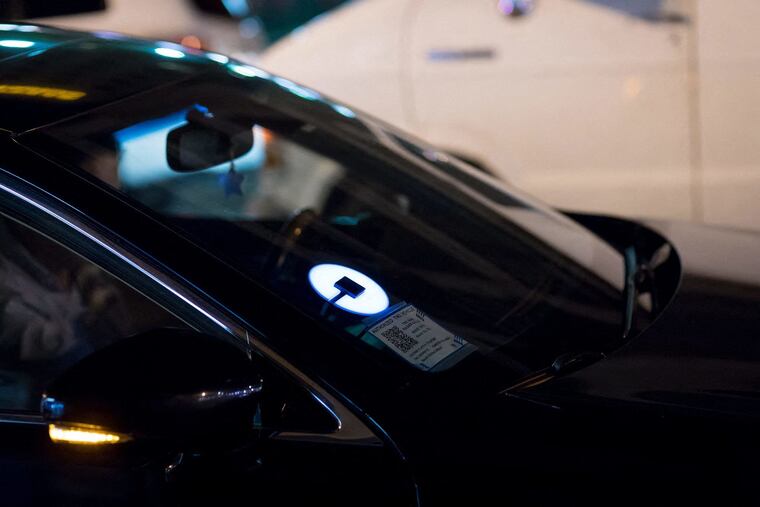Uber disclosed 3,000 sexual assaults in U.S. rides last year in its long-awaited safety report
Uber disclosed 3,000 sexual assaults in U.S. rides last year in its long-awaited safety report, released amid widespread criticism of its safety practices and pressure to increase its transparency over the issue.

Uber disclosed 3,000 sexual assaults in U.S. rides last year in its long-awaited safety report, released amid widespread criticism of its safety practices and pressure to increase its transparency over the issue.
In a lengthy report, which divides sexual misconduct into 21 categories, Uber said it recorded 235 rapes and thousands more cases of assault. It was the first time the company has released those numbers, and it did so amid heightened scrutiny from lawmakers, advocacy groups and consumers to improve the safety of the app's use.
Experts note that sexual assault is a chronically underreported problem, however, and that the figures were likely to undercount the true prevalence of sexual offenses.
Uber has been criticized over its safety practices and perceived stonewalling of law enforcement on sexual offenses. Its rival Lyft has faced lawsuits from at least 34 women in San Francisco who allege they were raped or sexually assaulted on the app.
"We believe transparency fosters accountability," Uber said last year when it pledged to release the report. "But truthfully, this was a decision we struggled to make, in part because data on safety and sexual assaults is sparse and inconsistent. . . . Making things even more complicated, sexual assault is a vastly underreported crime, with two out of three assaults going unreported to police. But we decided we can't let all of that hold us back."
Lyft has pledged to release a transparency report of its own. It was not immediately known when that report would be released.
Uber has a unit devoted to handling the most sensitive safety reports, but a Washington Post investigation published in September found that investigators are are instructed to keep the company's interests foremost, including through restrictions on their ability to report apparent felonies to police and a ban at the time on sharing information with competitor Lyft about possibly dangerous drivers. The restrictions meant that some drivers who were banned from Uber or Lyft for violations such as poor driving or assaults on passengers could, with impunity, simply register as a driver for the other company.
More than 20 workers from the division, known as the Special Investigations Unit, said it is designed primarily to shelter the company from legal responsibility and quietly resolve serious allegations to avoid press or regulatory scrutiny. Uber has denied those claims.
Scarce outside data exists on sexual assaults or deactivations at Uber. However, data obtained from a public information request show that in Chicago alone, more than 300 drivers were banned from Uber, Lyft and rival Via for allegations of sexual misconduct between January 2016 and August 2019. More than 1,100 of the nearly 70,000 active registered drivers in the city were barred for matters of safety during that span, according to the data, which showed that drug use or possession and traffic accidents ranked after sexual misconduct as the top reasons for a driver being blocked.
Uber's report, which looked at the time period of 2017 and 2018, examined data during a time period for which it said an average of more than 3.1 million trips took place each day. Most of those had no problem, it noted, placing that number at 99.9%.
Uber has made made safety changes as attention has been drawn to safety issues. Uber instituted an in-app safety tool kit with a 911 button so passengers can alert authorities immediately if they are in danger, and added check-ins for riders and drivers when trips veer too far off course. Meanwhile, Uber has given riders the option report uncomfortable interactions, such as invasive questioning or erratic driving, directly to safety specialists.